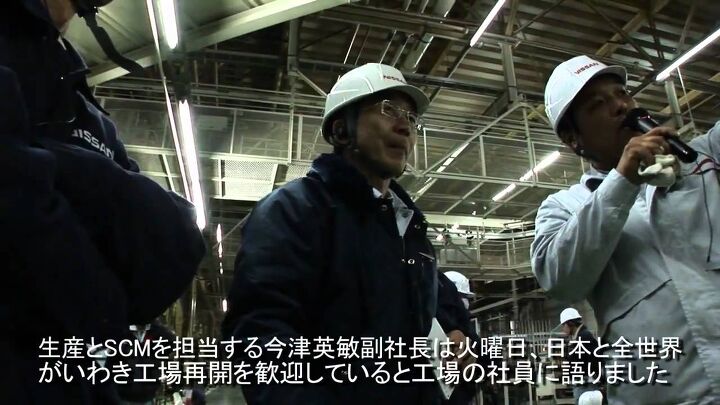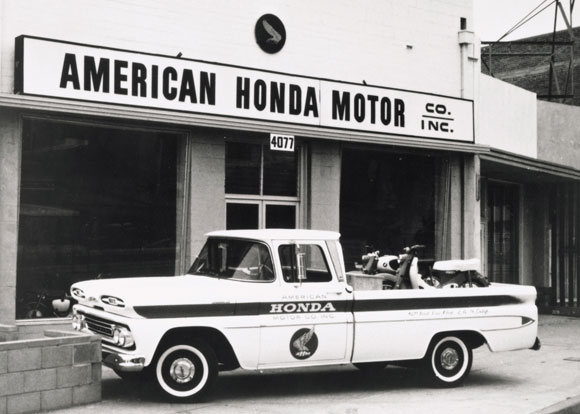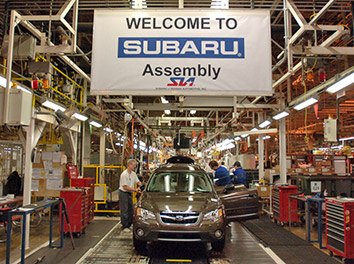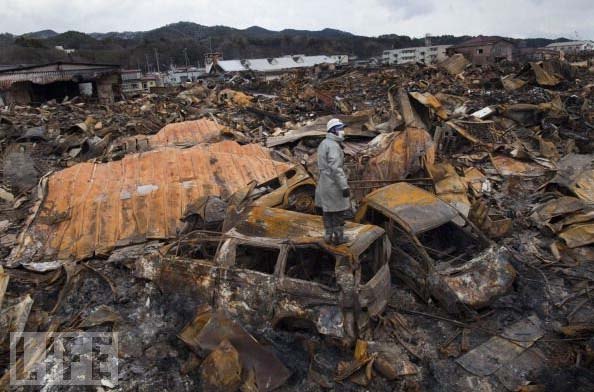#PartsParalysis
Japanese Parts Paralysis: Worst Situation Since The War
“This is the worst situation we’ve faced since the war,” a source close to Toyota told the Yomiuri Shimbun. The Japanese car industry is facing post-war-like shortages when it comes to auto parts. Toyota is short 150 parts positions, which can be anything from a bolt to a complete dashboard.
Dealerships are empty – of cars. Test drive cars do double duty as display vehicles. “We get a lot of customers coming in, but we don’t have cars to sell them,” a salesperson told the Tokyo paper.
Japanese Parts Paralysis: Nissan's Iwaki Engine Plant Back On-line
Nissan’s Iwaki engine plant is back on line, as this video from Nissan’s in-house channel attests. The plant, located some 35 miles away from the stricken Fukushima power plant, was severely damaged by the quake and had been off-line ever since March 11.
Japanese Parts Paralysis: Toyota Announces More Shutdowns In North America And China
During an intimate round table in Shanghai, usually well informed reporters were harping on the influence of radiation on Toyota sales. I expected the heads of communication of Toyota worldwide and Toyota China to blurt out: “Radiation? What impacts sales is the fact that we don’t have any cars to sell.” But they kept their cool in the face of a hot topic.
After a month-long quake-induced hiatus, Toyota restarted production in all Japanese factories on Monday. In the meantime, the shockwaves of the tsunami ripple through the supply lines.
Japanese Parts Paralysis: Honda Extends Half Steam Production Into May
Honda sources the vast majority of parts and materials needed for North American production in North America. “However, for global efficiency, a few critical parts continue to be supplied from Japan,” says Honda in a statement. Honda restarted production of component parts for North American plants Monday, April 4 at several Honda plants in Japan. However, those need their own parts and supplies. Therefore, Honda’s component production in Japan continues to run at approximately 50 percent of the original production plan.
This of course impacts North American production.
Japanese Parts Paralysis: Toyota Japan Production On Half Rations Into The Summer
The March 11 tsunami is having long term effects on Japanese car production. Toyota, the world’s and by far Japan’s largest car company, is severely impacted. Toyota just announced that vehicle production from May 10 to June 3 will proceed at approximately 50 percent of normal.
Japanese Parts Paralysis Reaches Subaru Indiana
Production of Legacy, Outback and Tribeca Subarus in Lafayette, Ind. will pause on Friday, April 15, Monday, April 18 and Monday, April 25 while Subaru sorts out supplies from Japan, Subaru of Indiana spokeswoman spokeswoman Jennifer McGarvey told Automotive News [sub].
Japanese Parts Paralysis: Toyota N.A. Shutting Down For A Week
Better get used to this: Barely had Toyota announced that it will reopen its Japanese plants, then Toyota U.S.A. chimes in and says: “We are shutting down.” Welcome to the supply chain gang. Toyota is running its N.A. vehicle plants on what they call “a reduced schedule.”
Meaning:
Japanese Parts Paralysis: Lack Of Chips For Cars Can Cost $76 Billion
When we worked on the Phaeton launch in 2001, we said it had “more computers than a small company.” It had 56. Today’s cars have anywhere between 30 and 100 computers on board. They are small microcontrollers that typically chat with each other via a CAN bus. You don’t take just any microcontroller for the job. They need to hold up to the harsh environment inside of a car. Their makers need to hold up to the harsh environment presented by the purchasing departments of automakers that squeeze them for every penny. As a result of both, there are only a few players in this field. This is the story of one of them.
Japanese Parts Paralysis: Tsunami Reaches U.S. Workshops
The first waves of the Japanese tsunami are reaching consumers at American shores. Oddly, some of the cars first affected may be the ones customers already have, not the ones they cannot buy. Toyota notified its dealers across the United States to prepare for a shortage of replacement parts, due to disruptions caused by the monster earthquake and tsunami in Japan, The Nikkei [sub] writes today.
Out of 300,000 “numbers”, as they call parts items in the vernacular, 233 are in short supply and have been “placed on controlled allocation,” as a Toyota U.S.A. statement says. Dealers are being asked to “refrain from placing any orders in excess of what is critically needed to support customer emergency need and true customer demand.”
Japanese Parts Paralysis: 35 Miles From The Fukushima Reactor, Nissan Wants To Save Its Plant
In the face of hysteria about radiation that drowns out the true death and destruction in Japan, Renault and Nissan CEO Carlos Ghosn toured the earthquake-damaged Nissan engine plant in Iwaki. Iwaki is some 35 miles from the stricken Fukushima power plant. Right away, Carlos Ghosn had to deny rumors that Nissan would abandon their engine plant. Instead, Ghosn “vowed to use every possible means to rebuild it,” says The Nikkei [sub].
It will be slow going.
Japanese Parts Paralysis Now Affecting China
“Production at a Nissan Motor plant in China dwindled dramatically two weeks after Japan’s earthquake and tsunami disrupted the supply of key auto parts,” reports China’s People’s Daily, citing “sources with the company.”
In a land where alleged spokespeople of a company get a heart attack and hang up when a reporter calls, those sources turned out to be workers at the Dongfeng Nissan joint venture in central China’s Hubei Province. “We used to assemble 304 cars a day, but today our plan is set at 82,” said a worker.
Parts Paralysis: A Shuttered Chip Plant Could Cost Up To 11 Million Cars Worldwide
A shortage of engine-related micro control units (MCUs) resulting from damage to Japan’s Renesas Electronics plant in Naka will curtail global auto production, says the market intelligence service ICSIS, citing a report by Germany’s Deutsche Bank. Renesas Electronics is the world’s biggest maker of automotive microcontrollers. It more and more emerges as a “key bottleneck in Japan’s parts shortage,” says Automotive News [sub]. One of its two auto-related factories damaged by this month’s earthquake won’t be operational until July.
Renesas supplies 18-20 percent of the world’s automotive MCU market. About 70 percent of the production is sold to Japanese automakers, the remaining 30 percent goes to US and European car companies. “The supply of these MCUs is not easily replaceable,” says ICSIS, “as boosting production at other sites could take as long as six to nine months.”
First Facts Emerge In Japanese Parts Paralysis
So far, it had been clear that the March 11 earthquake and tsunami would create big problems for the auto industry in Japan in particular and worldwide in general. When asked when, where, and how much, all we received were shrugging shoulders when taking to a westernized counterpart, or an “eeeh” or the customary sucking of air through the teeth when talking to an old school Japanese. Now finally, the first facts emerge.
Japan's Auto Production Hit By Parts Paralysis
After a long weekend (Monday was Spring Equinox), Japan came back to work today. Most of the Japanese auto industry did not.
Japan’s largest automaker Toyota, and Japan’s third largest, Honda, won’t be making any cars this week. Japan’s auto production is paralyzed.





























Recent Comments